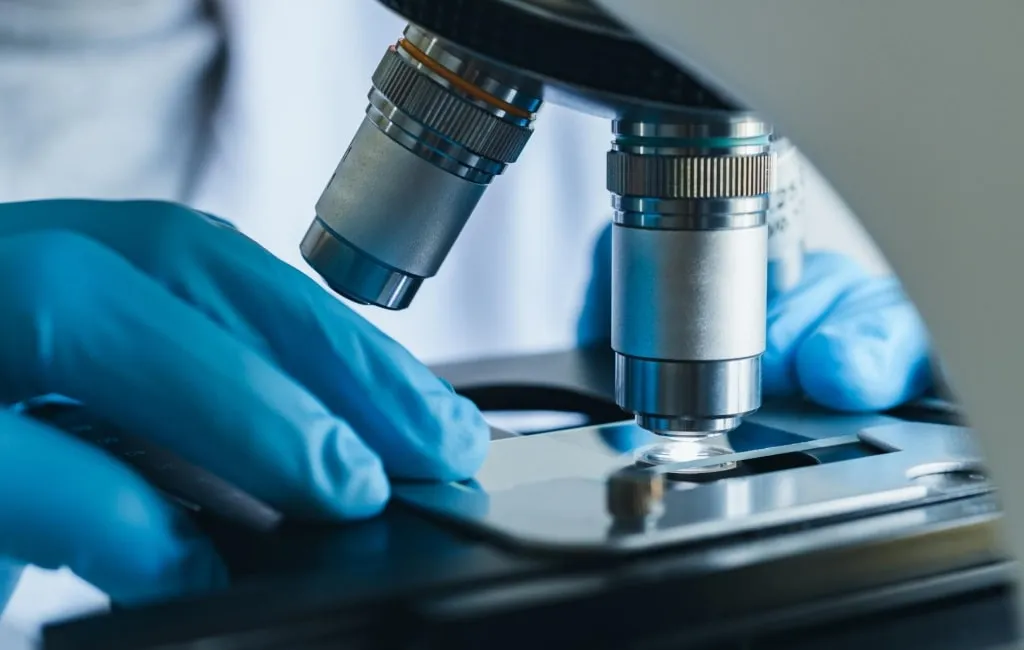The pediatric neurosciences research group investigates a very broad group of diseases, all of which are associated with neuron activity in the child or adolescent.
In most cases, this group studies rare diseases, and as such, there is little funding available for research.
As well as studying neurometabolic and neuromuscular diseases, the neurosciences group also handles investigations in the field of mental health: autism, attention deficit hyperactivity disorder and schizophrenia, in particular.
The research projects undertaken are very much patient-oriented, both with regard to precise diagnoses and sourcing new treatments, as well as to improving the quality of life of affected children. As such, the group is multidisciplinary, featuring specialists such as nutritionists, psychologists, biochemists, pathologists, biologists, etc., in addition to neurologists and psychiatrists, all of whom have the best interests of the patient and their family at heart.
Main lines of investigation
Inborn errors of metabolism (IEMs) are a group of more than 700 disorders resulting from hereditary abnormalities and end up causing cells and organs to function improperly. The most common of these is phenylketonuria, or PKU.
PKU (Phenylketonuria)
Inborn errors of metabolism (IEMs) are a group of more than 700 disorders resulting from hereditary abnormalities that end up causing cells and organs to function improperly. The most frequent of these is phenylketonuria, or PKU.
Just like other IEMs, phenylketonuria often causes an accumulation of toxic substances in the short- or long-term, or even the inability to produce the essential compounds needed for normal childhood development.
Thanks to our research, there have been trials of new treatments in affected patients which have been able to partially free them from their protein-restricted diet, which is generally a lifelong commitment. Monitoring this treatment will be a very significant research focus over the coming years.
Neuromuscular diseases generally lead to a loss of muscular tone.
Neuromuscular diseases
Neuromuscular diseases generally lead to a loss of muscular tone.
Some of them appear at birth, but they can manifest at any stage of life. A large proportion of them are hereditary, and as such, cannot be prevented. They are progressive, degenerative diseases, and often cause severe disabilities in affected children, who often have a low life-expectancy as a result.
It is estimated that there are around 50,000 affected individuals in Spain. Research is the only way we can improve these patients’ quality of life, as well as make progress in treating the disease.
Many neurological diseases that affect children are caused by poor neuronal communication, brought on by genetic errors that alter how brain signals are transmitted.
Diseases relating to neuronal communication
Many neurological diseases that affect children are caused by poor neuronal communication, brought on by genetic errors that alter how brain signals are transmitted.
This lack of communication between neurons results in children presenting severe communication issues (or even complete loss of speech), intellectual delays, difficulty or inability to walk, and other repercussions that hugely limit their personal autonomy, their quality of life, and that of their family. The laboratory for the study of neuronal synapses in neuropediatric diseases was created to expand knowledge in this area.
Rett syndrome
One of our main lines of study is on Rett syndrome, a severe genetic neurodevelopmental disorder that presents almost solely in girls, as its origins lie in the X chromosome.
In Spain, there are around 3,000 individuals with this syndrome. Our Hospital is researching the syndrome, on the most part, thanks to the huge efforts of several families who have not lost hope of finding a cure for this disease.
This line of research focuses on the study of dystonia: a movement disorder that causes involuntary muscle contractions.
Movement disorders caused by rare diseases
This line of research focuses on the study of dystonia, which is a movement disorder that causes involuntary muscle contractions.
It causes permanent muscle contortions in patients, therefore hugely impacting their quality of life, as they cannot control their movements nor physical posture.
These types of diseases are predominantly hereditary genetic diseases and occur during the first few years of life. Compared to other neurological diseases, the cognitive and intellectual capacity of these children remains completely intact.
The disease originates in the basal ganglia, a structure at the base of the brain comprised of neurons. This structure controls body movements, particularly those which we do voluntarily but without thinking about them during repetitive tasks or daily routines.
In some cases, dystonia is related to problems with vitamin production. An early, highly-concentrated dose can often achieve a significant improvement in many patients. There is, however, still a lot to learn about this and other movement disorders. Research is the only way we can do so.
Brain Project
Childhood neurological diseases are very different to adult diseases, because children's brains are continually developing. This gives them unique characteristics that should be taken into consideration to properly understand how they function and how to treat diseases that affect them.
As a result of the clear need to learn more about children's brains, the SJD Barcelona Children's Hospital developed the groundbreaking BRAIN Project, thanks to contributions from wider society. Its intention is to revolutionise current methods of investigating neuropediatric diseases, thereby improving patient diagnosis and treatment.
To achieve this objective, we have 4 main lines of research:
- Diagnostic techniques.
- Translational investigation.
- Personalised therapies.
- Multidisciplinary approach.





